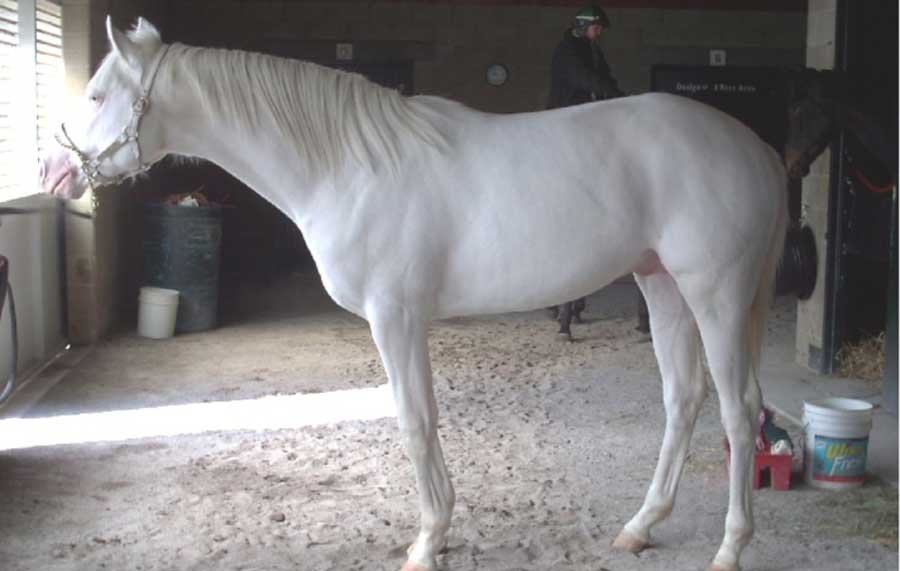Horses are probably the most high-maintenance companion animals out there. They require much more care and attention than a pet dog or a kitten. And buying a pedigree horse or the one belonging to a popular breed can cost you a kidney.
It takes even more than just resources to keep your horse in the pink of its health. The time and effort you put in can end up costing you more than just money.
However, sharing your life with an equine friend can be a rewarding experience. Here are some tips for caring for your horse without putting a hole in your pocket.
1. Regular supply of food and water
Good quality roughage is an integral part of horse care. While grass is a horse’s natural food, it may not always be available and insufficient in some circumstances. They usually need hay or pasture throughout the day, with grain feedings twice a day.
An average-sized horse consumes about 20 pounds of food and eight gallons of water per day. Because horses’ stomachs are relatively small and their digestive systems are surprisingly delicate, they need to graze throughout the day instead of having one or two meals.
For the ones residing in Australia, you must check out PetStock Australia for the best quality food for your stallion. For the ones who are not, you can explore the internet or seek advice from people who already have a horse.
Keeping your horse hydrated during the summer months is critical to keeping them happy and healthy. Your horse can consume up to 55 litres a day in hot weather, so keeping a steady supply of clean, fresh drinking water is crucial. Also, ensure that water buckets haven’t run dry or been knocked over.
2. Horses need exercise
Horses are essentially grazing athletes that require heavy exercise every day. Turning horses out to pasture with other horses is the best way to get them moving. After that, they will walk steadily for several hours. This is the best type of basic horse exercise.
Your horse should have a paddock or pasture to relax and stroll, in addition to the training, he will get from riding. No horse should be confined in a stall all day unless a veterinarian recommends it.
Massages for horses will help work the muscles, increase muscle tone, and increase circulation. This is another excellent form of activity for a horse who may require restricted movement due to an injury.
2.2 Invest in High Quality Saddle Pads
Saddle pads are super important for keeping horses healthy. They act like a protective layer between the horse’s back and the saddle, making sure the rider’s weight is spread out evenly and avoiding any discomfort. Saddle pads designed for ultimate comfort of the horse are preventing injuries as well. The good ones even keep the horse’s back dry. So, getting high-quality saddle pads isn’t just about making the rider cozy; it’s a big deal for taking good care of the horse.
3. Don’t forget about shelter
Horses spend most time indoors in a stall. However, horses require constant access to a dry, secure, comfortable shelter to protect themselves from rain, wind, or snow. Therefore, barns, sheds, and stalls have to be designed appropriately for adequate horse care and safety.
This shelter will provide much-needed shade and protection from biting insects for your equestrian companion. At the very least, you should have a well-built, three-sided shed into which your horse can always retreat. Also, you have to remove manure from the shelter every day.
The pasture should be surrounded by strong, safe fencing that keeps the horse safe and secure. Barbed wire is not an acceptable fencing material; it has resulted in numerous serious injuries.
4. Be aware of parasites
Horses are constantly exposed to intestinal worms from the grounds they feed on. Worms can cause severe illness or death in horses, so regular and timely treatment is critical to your horse’s health. So, they must be put on an anti-parasite regimen prescribed by your equine practitioner.
Deworming, along with other management practices, helps keep a horse’s internal parasite load at an acceptable level.
Routine faecal egg count tests can help you determine your horse’s parasite load. However, if you suspect your horse has a parasite infestation, don’t hesitate to get in touch with your veterinarian right away.
5. Replace the salts lost through sweat
Sweating is significant for horses because it is one of the primary ways they release heat and cool down. Even while resting, your equine companion sweats at a much higher rate than humans.
Horses lose vital salts and electrolytes through sweat. Therefore, it would be best if you covered this loss to maintain a healthy balance in your horse’s body.
A salt lick can help your horse regain some of the salts lost through sweat. You can also supplement their diet with a suitable electrolyte for horses to help them regain that all-important balance.
Over to you…
These are the nitty-gritty details of horse care. As you can see, investing in a horse requires significant time and effort. However, you’ll be ready for responsible horse ownership once you’ve mastered these fundamentals. So get ready to discover the fulfilling experience of owning a horse.

